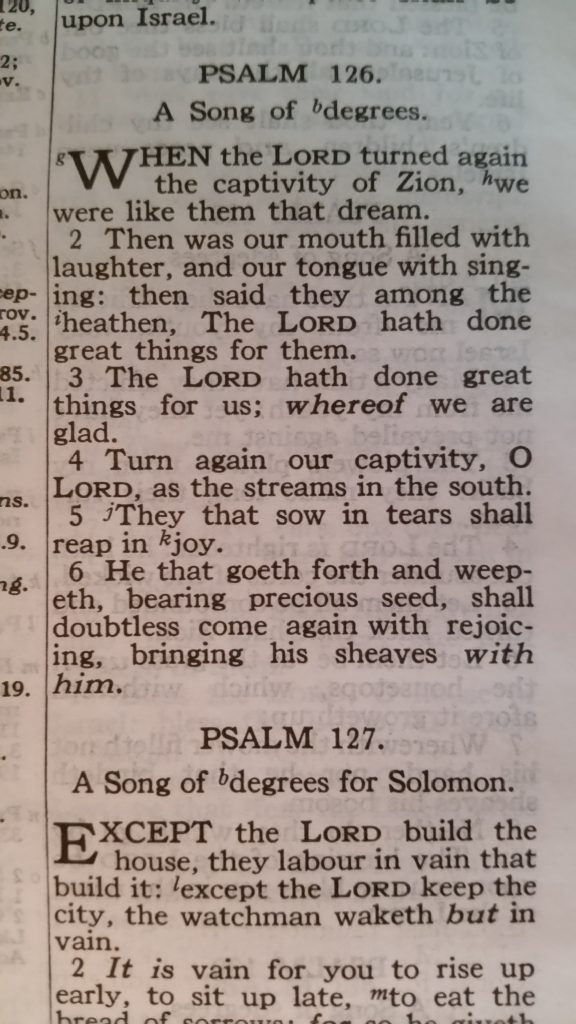The Bible is indexed into chapters and verses for easy reference. For example, ‘Romans’ would point the reader to Paul’s epistle (or letter) to the Romans. (The reader would need to have a general idea where Romans is in the Bible. Please see our article on Bible Books.) Romans 2:5 would point the reader to Romans, chapter 2, verse 5.
Origins of Chapters and Verses
The Bible, as originally written, was not divided into chapters and verses. Chapters were introduced in the 13th century by Stephen Langton, Archbishop of Canterbury. Verses were introduced in the 16th century by the French scholar Robert Estienne (commonly known as Stephanus). As a Reformation-era scholar, he produced several editions of the (Textus Receptus) Greek New Testament text, and first introduced verse numbering in his 1551 edition.
Issues with Chapters and Verses
Chapters and verses are man-made additions to the Bible; they should not be considered inspired. On the contrary, there are many chapter divisions that seem out of place.
Example: Immediately after Jesus tells Peter that he will deny Him, He also tells him not to be troubled.
John 13:36 – 38
36 Simon Peter said unto him, Lord, whither goest thou? Jesus answered him, Whither I go, thou canst not follow me now; but thou shalt follow me afterwards.
37 Peter said unto him, Lord, why cannot I follow thee now? I will lay down my life for thy sake.
38 Jesus answered him, Wilt thou lay down thy life for my sake? Verily, verily, I say unto thee, The cock shall not crow, till thou hast denied me thrice.John 14:1 – 3
1 Let not your heart be troubled: ye believe in God, believe also in me.
2 In my Father’s house are many mansions: if it were not so, I would have told you. I go to prepare a place for you.
3 And if I go and prepare a place for you, I will come again, and receive you unto myself; that where I am, there ye may be also.
Example: The first sentence of Acts 8:1 really should have been part of Acts Chapter 7 (perhaps as it’s own verse.)
Acts 7:59 – 60
59 And they stoned Stephen, calling upon God, and saying, Lord Jesus, receive my spirit.
60 And he kneeled down, and cried with a loud voice, Lord, lay not this sin to their charge. And when he had said this, he fell asleep.Acts 8:1 And Saul was consenting unto his death. And at that time there was a great persecution against the church which was at Jerusalem; and they were all scattered abroad throughout the regions of Judaea and Samaria, except the apostles.
Psalms has Psalms, not Chapters
Chapter and verse divisions are helpful in that they allow us to easily find a given passage. A pastor can say something like, “Everyone turn to Romans 5, starting in verse 8,” and the congregation will be generally able to find the passage. We can also look up a given word in Strong’s concordance, be given a list of references of book, chapter and verse in which that word can be found, and then look up the references.
However, Strong’s concordance is only good for looking up one word at a time. What if we want to find two or more words near each other? At this point, we would turn to a website or software with a Bible search engine. Unfortunately, most Bible search engines will only find the words if they are in the same verse. Remember, we want to find two or more words near each other. Just because the words aren’t in the same verse doesn’t mean that they aren’t in the same context. Bible SuperSearch’s ‘proximity’ search features, including ‘Words within 5 Verses’ and ‘Words within Same Chapter,’ are built to help finds words in the same context, but not necessarily in the same verse.
In conclusion, chapter and verse divisions are generally helpful, but they do have limitations on usefulness. Sometimes, chapter divisions break up the thought of Scripture. When reading the Bible, and encountering a chapter break, we must remember that the chapters weren’t part of the original, and treat the first verses of the chapter as part of the same context as the last verses of the previous chapter. With verses, sometimes they are taken out of context. Always consider the context before determining how to interpret a verse. Chapter and verse divisions are a blessing, however, we must remember that they are not inspired by God and certain considerations must be made when using them.

